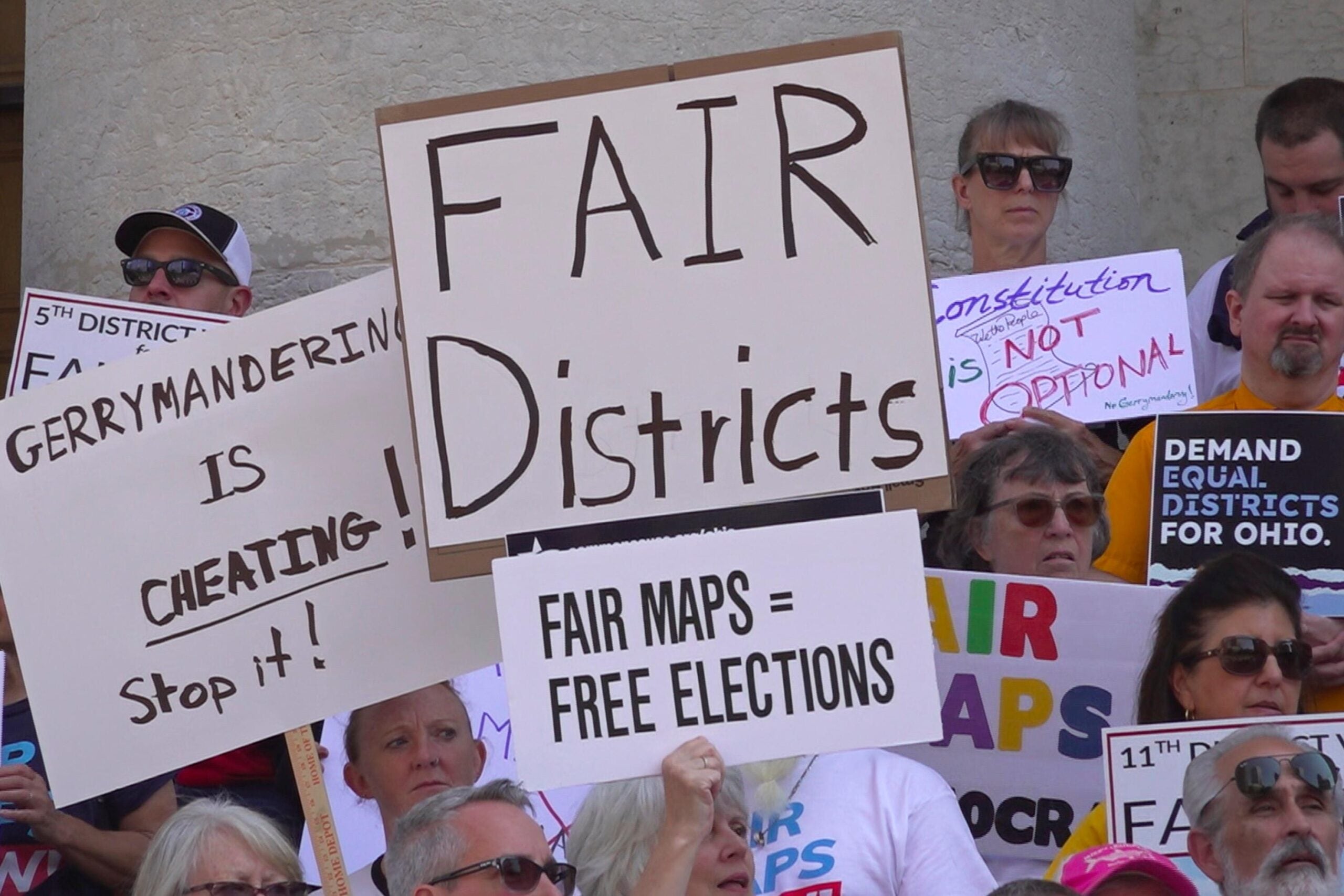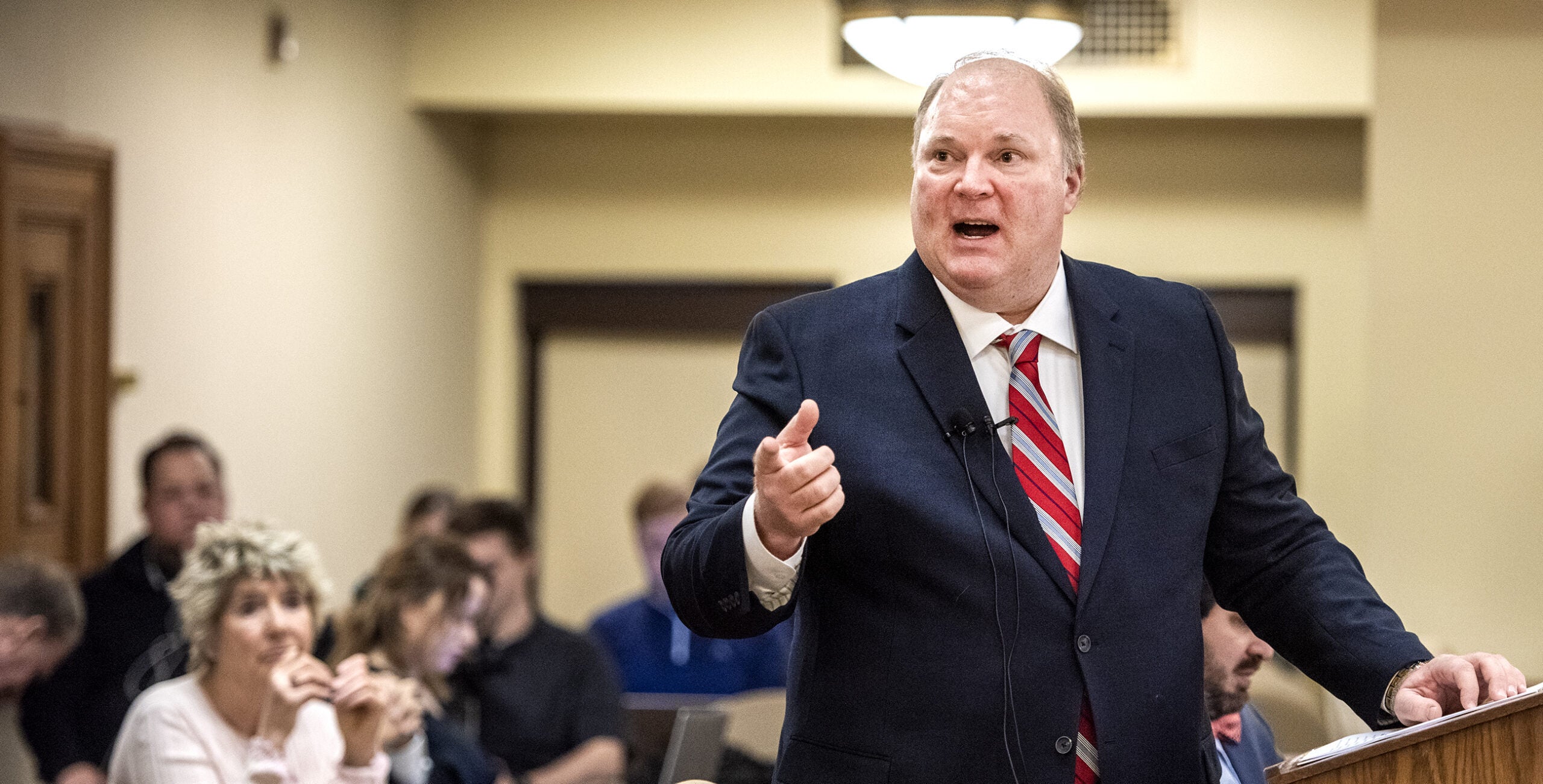A coalition of progressive attorneys is forming a new nonprofit law firm in Wisconsin on the eve of the next election and months ahead of the next round of redistricting.
The group, called Law Forward, will be run by attorneys who’ve fought Republicans in court on issues ranging from redistricting to Wisconsin’s 2018 lame-duck legislative session. It will be advised by a council that includes former Democratic U.S. Sen. Russ Feingold and former Democratic Lt. Gov. Barbara Lawton.
Broadly speaking, it could serve as a counterweight to the conservative Wisconsin Institute for Law and Liberty (WILL), a nonprofit law firm that’s been a powerful ally of Republicans in the state’s courtrooms for the past decade.
News with a little more humanity
WPR’s “Wisconsin Today” newsletter keeps you connected to the state you love without feeling overwhelmed. No paywall. No agenda. No corporate filter.
“I think that’s an inevitable shorthand, but I think that we’re more than just a reaction to WILL,” said Jeff Mandell, the founder, president and lead counsel for Law Forward. “We are a reaction to a much broader conservative campaign that has been concerted over the last 10 or 15 years in Wisconsin to distort Wisconsin governance and to test out radical theories.”
Mandell said Law Forward is designed to defend “ongoing attacks on the state’s progressive tradition” and on the way government works in Wisconsin. He said the group will be funded by “organizations, individuals and foundations which share our goals,” but declined to offer more specifics.
Mandell was the lead attorney in the first case that challenged laws Republicans passed during the waning days of Gov. Scott Walker’s administration that limited the power of Democratic Gov. Tony Evers and Democratic Attorney General Josh Kaul. He also served as special counsel to Evers ahead of Wisconsin’s April election, and more recently, successfully fought efforts by Kanye West and the Green Party to get on Wisconsin’s presidential ballot.
Law Forward’s litigation director will be Doug Poland, who has represented Democrats in multiple redistricting lawsuits, including one that made it all the way to the U.S. Supreme Court in 2017. He was also involved in a lawsuit that successfully extended deadlines for absentee ballots in the April election and another that sought to do the same in November.
Poland said he worked with national groups during the last redistricting challenge.
“They can provide some very good depth of knowledge in specific areas, but they don’t know Wisconsin particularly well,” Poland said. “We already have our finger on the pulse of what’s going on here.”
In addition to Mandell, Law Forward’s board of directors includes Christine Bremer Muggli, former president of the Wisconsin Association for Justice, the state’s trial lawyers’ association.
The group’s advisory council, which is chaired by Feingold and Lawton, also includes Marquette University Law professor Ed Fallone, who has run twice for the Wisconsin Supreme Court, Ian Bassin, co-chair and founder of the national group Protect Democracy, and Dean Strang, a longtime Wisconsin defense lawyer.
When it comes to legal fights over issues like voting, redistricting or government power, Democrats and Republicans have typically relied on a shortlist of lawyers with expertise in their fields and partisan leans.
While both parties still rely on those lawyers, WILL has given conservatives a different avenue to the court system, using private donations and grant funding to advance an ideology of “the promotion of free markets, limited government, individual liberty, and a robust civil society.” That’s let the group file briefs in a wide range of high-profile cases and sometimes file lawsuits on behalf of individual plaintiffs.
Without a similar model on the left, Mandell said Wisconsin progressive have been more reactive.
“There can be people who want to bring those cases as plaintiffs, but they have to figure out how to fund them,” Mandell said. “They either have to recruit private law firms that are willing to do those cases on a pro bono basis, which can be very difficult, or they have to figure out where the money’s coming from for those cases. And one of the things that Law Forward is going to be able to do is raise money around a set of values.”
Wisconsin Public Radio, © Copyright 2026, Board of Regents of the University of Wisconsin System and Wisconsin Educational Communications Board.






